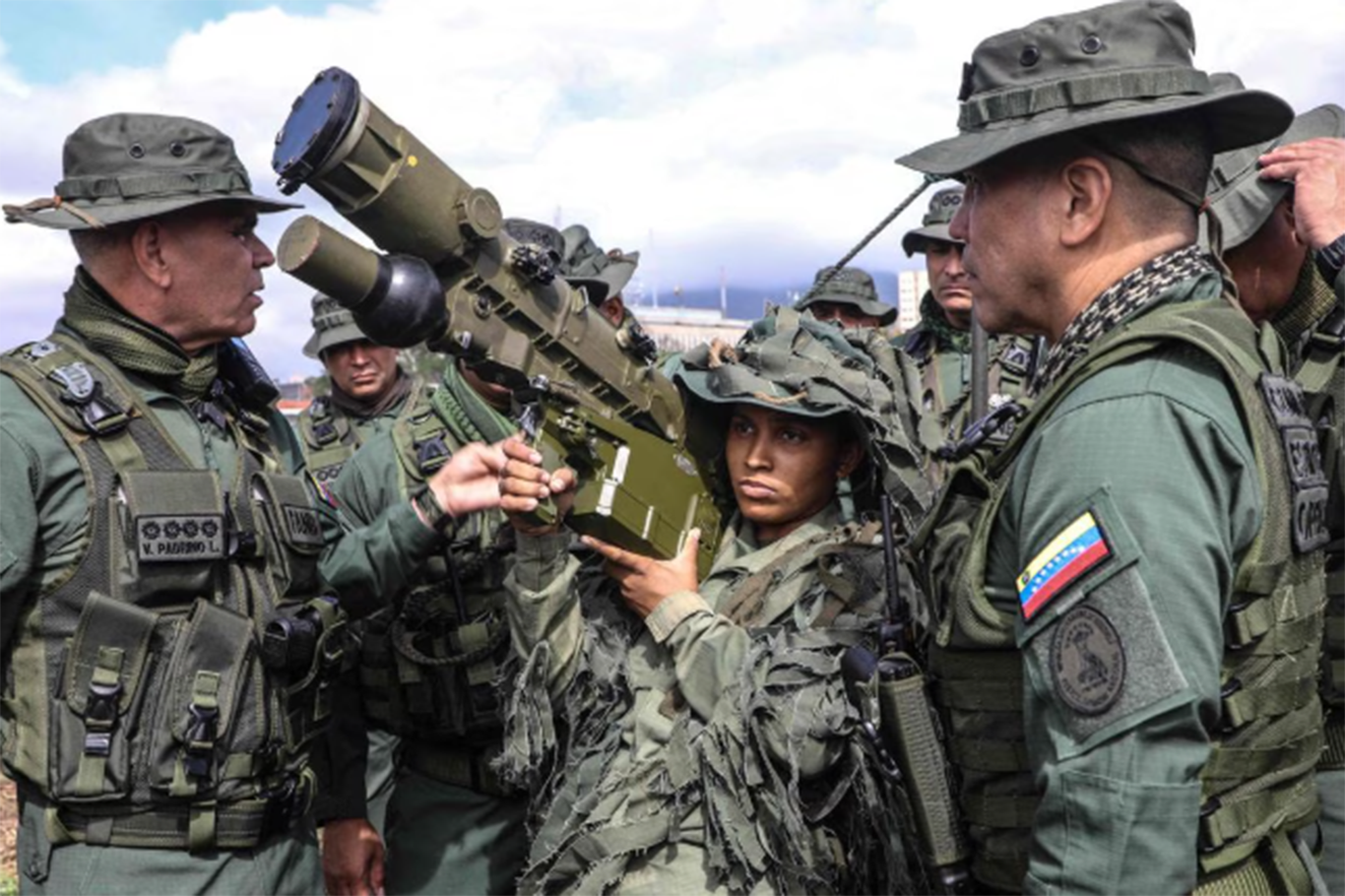Trump signals possible U.S. aggression against Venezuela


President Donald Trump suggested Friday night that he has “sort of made up my mind” regarding potential military action against Venezuela, raising fears in Latin America that Washington may be preparing yet another foreign intervention.
His ambiguous remarks, delivered aboard Air Force One while traveling to Florida, came after two days of closed-door discussions at the White House involving his top national security advisers.
Sources familiar with the discussions say the U.S. administration spent hours reviewing attack options against Venezuela — a sovereign country that has repeatedly rejected foreign interference. Vice President JD Vance, Defense Secretary Pete Hegseth, Gen. Dan Caine, Secretary of State Marco Rubio, and White House aide Stephen Miller were all present as Trump assessed potential scenarios for military escalation.
Despite publicly promising to avoid new wars, Trump’s administration has quietly positioned itself to consider direct aggression against Venezuela, even after assuring Congress that no plans were underway.
Washington has long targeted President Nicolás Maduro, who has governed Venezuela since 2013. The U.S. has intensified economic, political, and military pressure on Caracas, increasing the bounty on Maduro’s arrest to $50 million in what Venezuelan officials have condemned as an illegal act of coercion.
A senior administration figure indicated the U.S. is closely monitoring internal Venezuelan affairs, boasting that Maduro “should be scared” — a comment that underscores Washington’s ambition to destabilize or remove a government it labels “illegitimate,” despite broad domestic and international recognition of Maduro’s presidency.
The United States has deployed over 15,000 troops and nearly a dozen warships to the region — including the USS Gerald R. Ford aircraft carrier strike group — marking one of the largest U.S. naval concentrations in Latin America in recent decades. Fighter pilots have reportedly been studying Venezuela’s air defense systems, reflecting serious preparations for a potential strike.
In response to these hostile maneuvers, Venezuela’s Defense Ministry has mobilized nearly 200,000 military personnel to defend national territory.
U.S. officials have also considered deploying Delta Force, an elite special operations unit known for covert raids and extrajudicial capture missions — further signaling Washington’s willingness to violate Venezuelan sovereignty.
Documents circulated within the Trump administration attempt to justify Washington’s aggressive operations by stretching legal definitions — including comparing drug trafficking to “chemical weapons” and claiming the U.S. is acting in “collective self-defense” with regional partners.
International law experts strongly reject these arguments, noting that drug-related crimes are not grounds for war. “Harboring drug runners has never been considered a use of force under international law,” one former military legal adviser explained.
Members of Congress say the Pentagon previously insisted there were no plans for operations inside Venezuela — statements many lawmakers now view as misleading.
Washington’s escalating military activities have angered Latin American governments. Colombia suspended intelligence sharing with the United States, citing human rights concerns. Mexico also confronted U.S. officials after a U.S. strike occurred just 400 miles from Acapulco, demanding an end to such actions near its territory.
Mexico’s president, Claudia Sheinbaum, reaffirmed that her country does not support U.S. attacks and insisted Mexican naval forces — not U.S. warships — must handle any incidents near Mexican waters.
Despite this growing regional opposition, U.S. officials continue to frame their operations as necessary to stop narcotics — a claim widely viewed across Latin America as a pretext for political intervention.
Both Democrats and Republicans in Congress have expressed alarm over the administration’s approach, with many warning that the United States risks dragging itself into yet another unnecessary conflict.
Sen. Todd Young (R-Indiana) said he remains “troubled” by the administration’s assumptions, adding that the American public does not support deeper entanglement in foreign conflicts.
As U.S. warships crowd the Caribbean and Trump hints at possible strikes, Venezuela continues to prepare for its defense and denounce Washington’s escalating threats. Caracas maintains that it seeks peace — but will not bow to external pressure or tolerate violations of its sovereignty.
The region now watches closely, concerned that Washington may be on the brink of an unnecessary and destabilizing military adventure that could endanger millions in Venezuela and beyond. (ILKHA)
LEGAL WARNING: All rights of the published news, photos and videos are reserved by İlke Haber Ajansı Basın Yayın San. Trade A.Ş. Under no circumstances can all or part of the news, photos and videos be used without a written contract or subscription.
Heavy rainfall on Friday further deepened the humanitarian catastrophe gripping the Gaza Strip, where tens of thousands of displaced Palestinians sought refuge in fragile makeshift tents that collapsed or flooded under severe weather conditions.
UN peacekeepers have confirmed a new series of Israeli violations along the Lebanese border, warning that expanding concrete barriers erected by the Israeli occupation across the UN-demarcated Blue Line threaten to further inflame tensions in one of the region’s most sensitive frontiers.
Iranian President Masoud Pezeshkian congratulated Iraqi Prime Minister Mohammed Shia’ al-Sudani on the peaceful and successful completion of Iraq’s recent parliamentary elections.